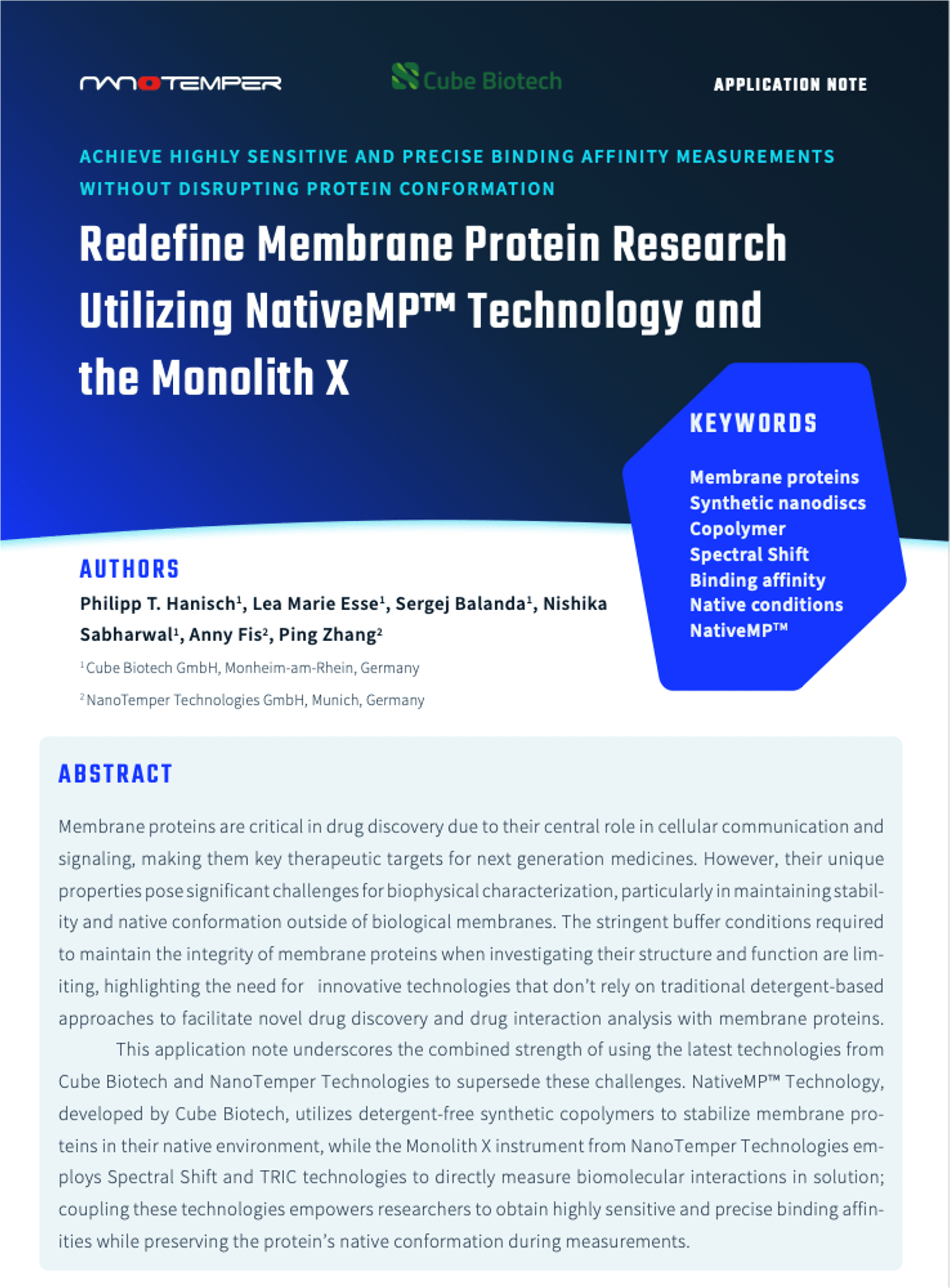Antibody-drug conjugates (ADCs) have been recognized as a promising new class of therapeutic agents for the treatment of cancer. In the generation of ADCs, cytotoxic small molecules are covalently attached to therapeutic antibodies thereby increasing their tumor cell killing capability. We have performed MicroScale Thermophoresis experiments to determine the Kd values for the interaction between fluorescently labeled antibody-drug conjugate (SYD985) and an anti-toxin (drug) antibody in phosphate buffer as well in human plasma. The data show that MicroScale Thermophoresis is a powerful tool for the study of antibody-antigen interactions in standard buffers as well as complex bioliquids.
Have a question about Monolith?
Contact SpecialistSee more related content
 27:51
27:51Integration of Nantive MP and Monolith X enables accurate binding affinity analysis while preserving membrane protein structure and function.
 43:09
43:09Learn about technologies and instruments that maintain membrane protein stability and allow structural abd affinity screening studies in their natural lipid environment.

The tool you choose to measure affinities should tackle a diverse range of targets and ligands that come your way — such as GPCRs, IDPs, or cancer-related proteins. And, you should get data that help
To understand signaling pathways, Spectral Shift technology allows for accurate bindings affinity measurements of membrane proteins like GPCRs in close to native conditions.

Drug Discovery Chemistry is an annual event that focuses solely on early drug discovery, where scientists from around the world gather to showcase their research and participate in thoughtful...

NanoTemper Technologies introduced Monolith X, adding breakthrough Spectral Shift technology to their top-selling Monolith product line.

NanoTemper’s newest Monolith instrument has been awarded the Red Dot Award, an internationally recognized seal of excellence in design. Both bold aesthetics and user-friendly design have always...

If you’re new to the world of TPD or you’re trying to keep up with all developments in this fast-moving field, here are some terms and definitions that will help you.
The desire to use technology that allows you to study membrane proteins in close-to-native conditions is specifically important when it comes to interaction measurements. It’s always a question how mu
Targeted protein degradation using molecular glues or proteolysis-targeting chimeras (PROTACs) is an increasingly important therapeutic modality, especially for undruggable targets. Even with candidat

One advantage of PROTACs is their unique mode of action — the induced proximity of an E3 ligase and the protein of interest (POI) triggers the ubiquitination and then degradation of the POI by the...
SARS-CoV-2, the causative agent of COVID-19, has an ssRNA genome of almost 30kb that encodes for a total of 26 proteins. Among the four structural viral protein, in particular the S protein stands out




